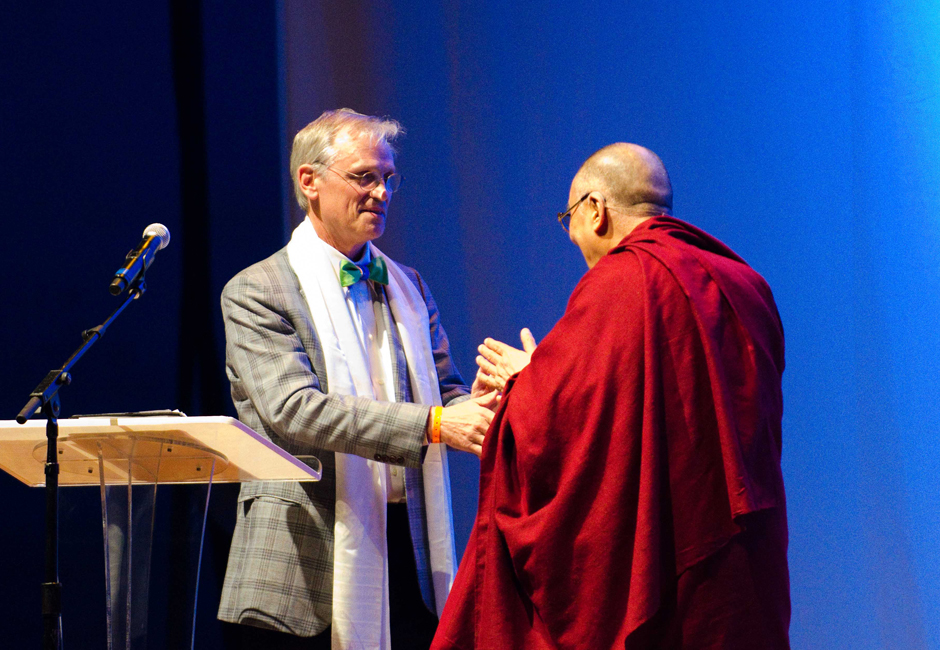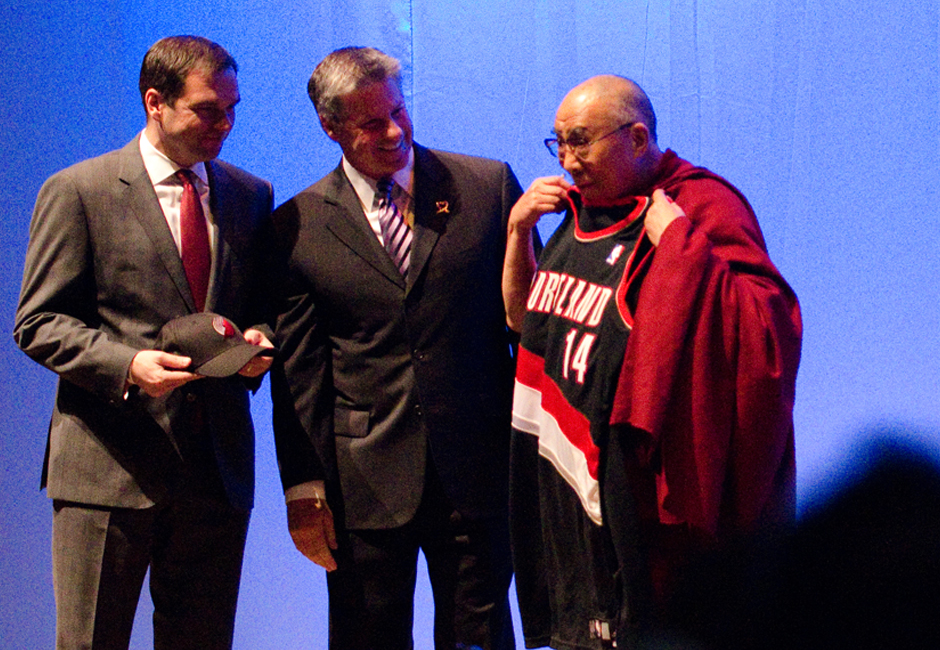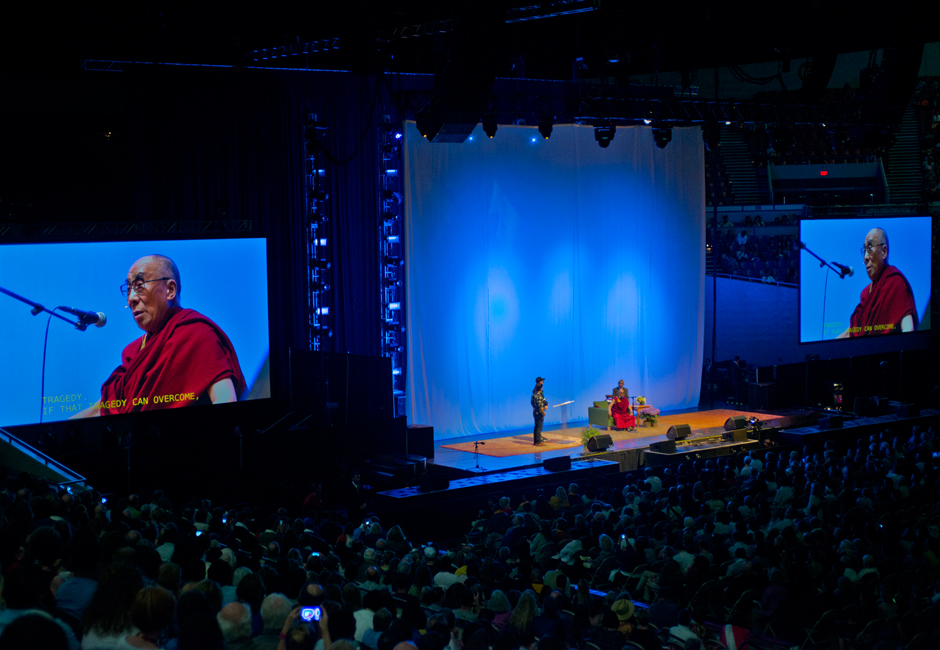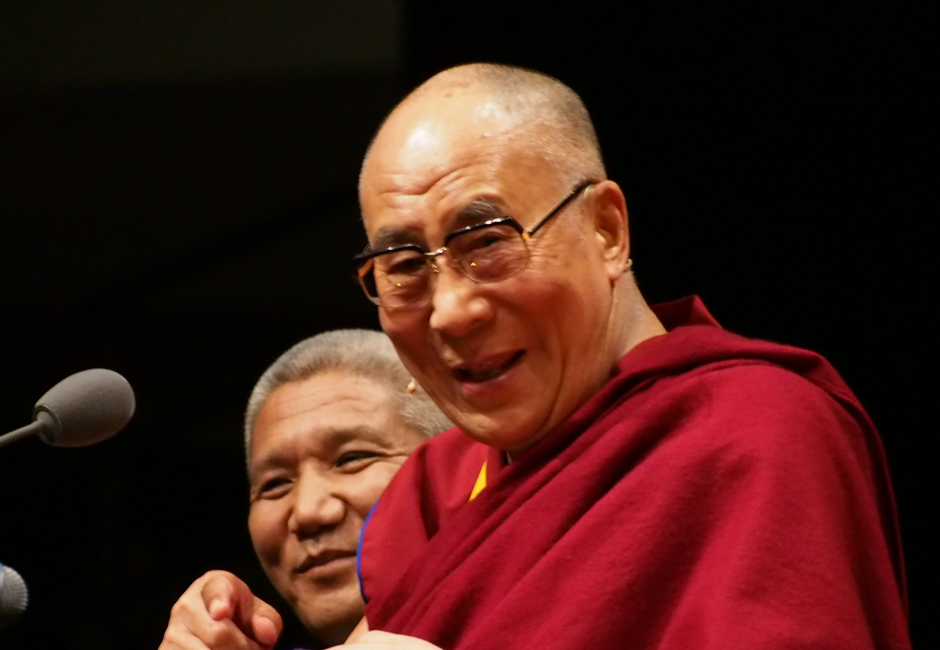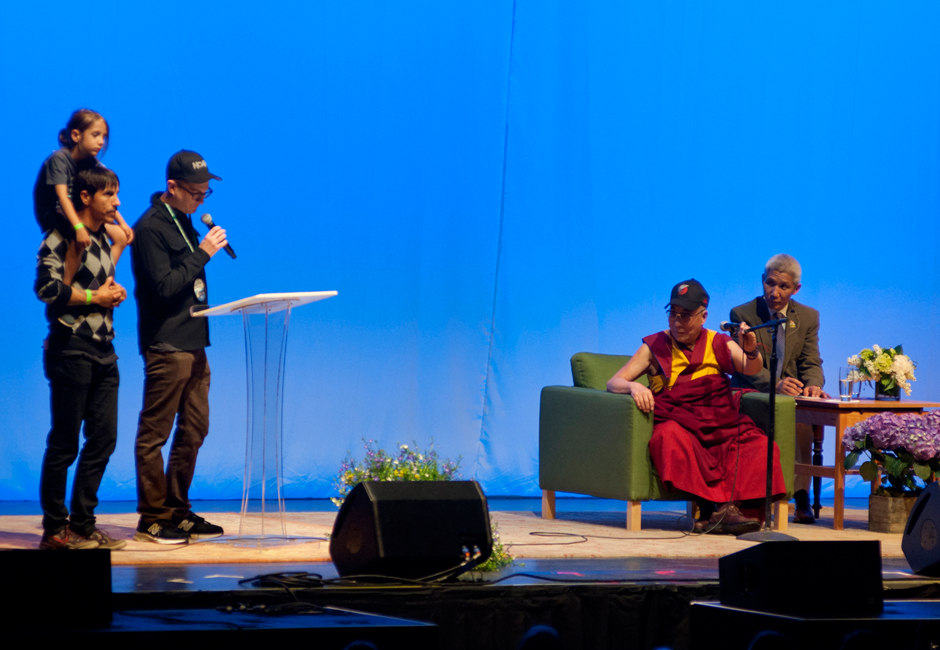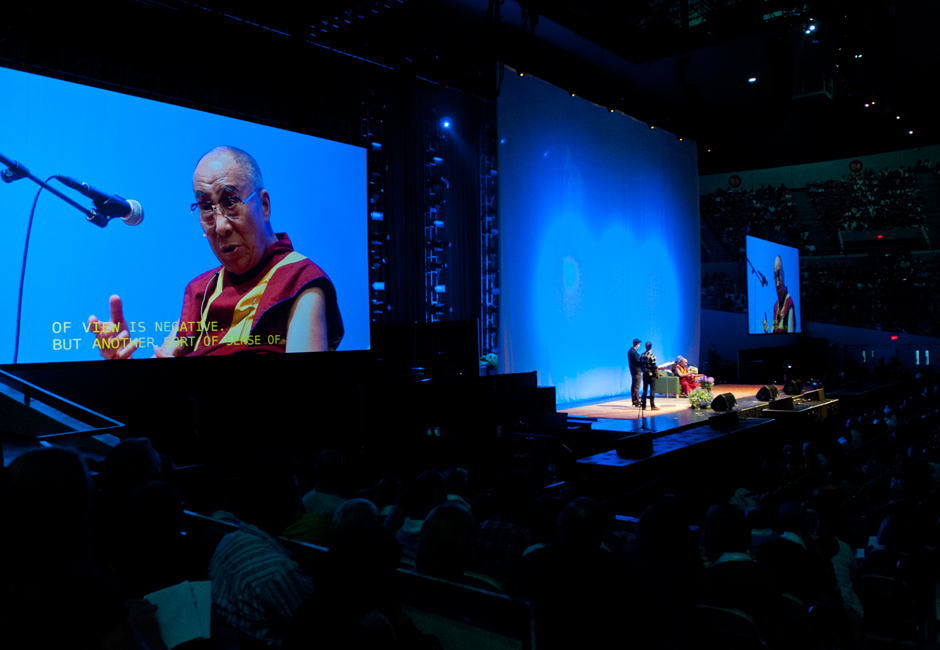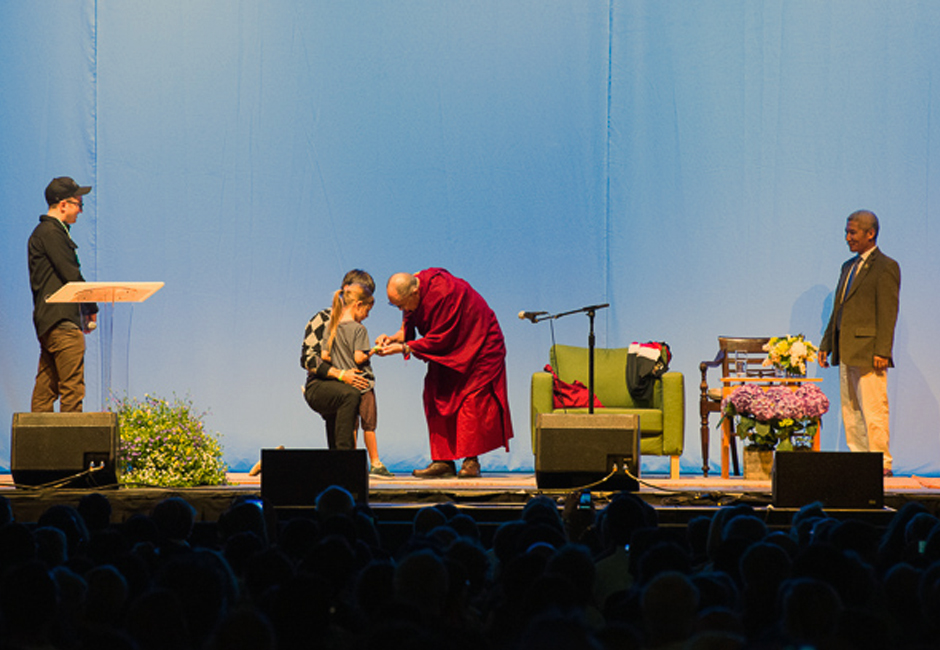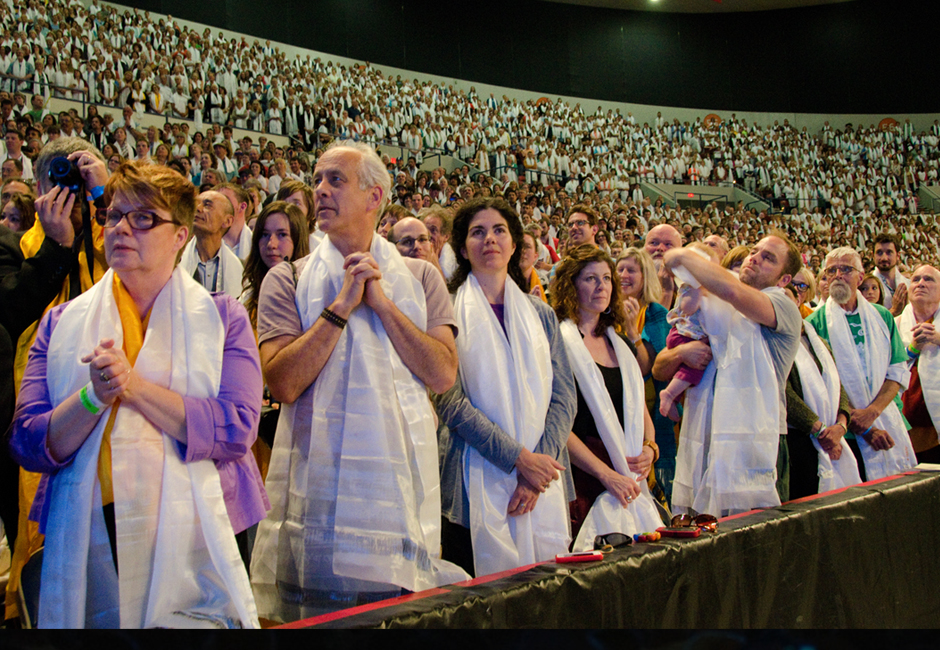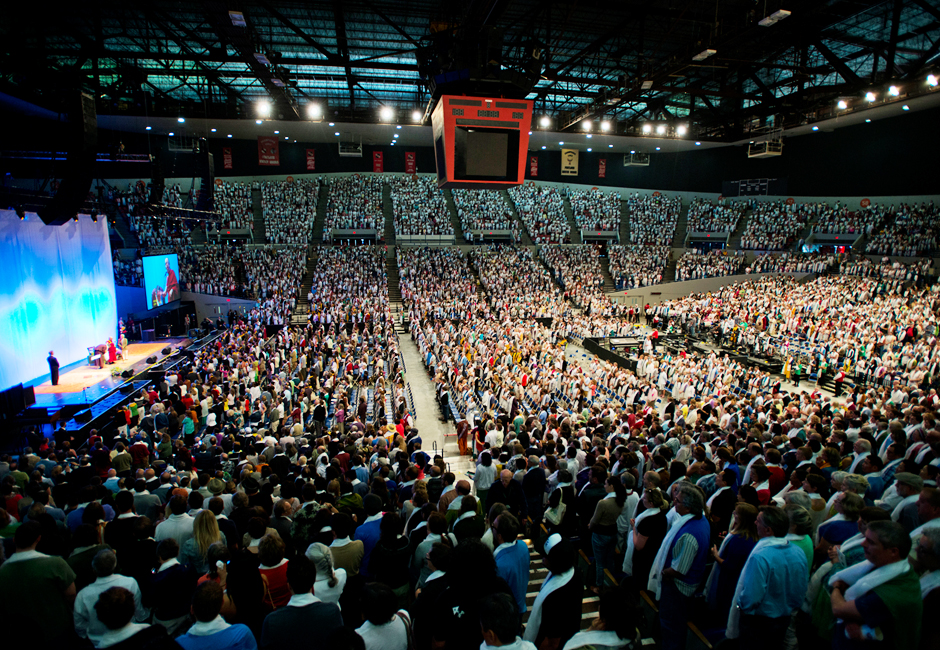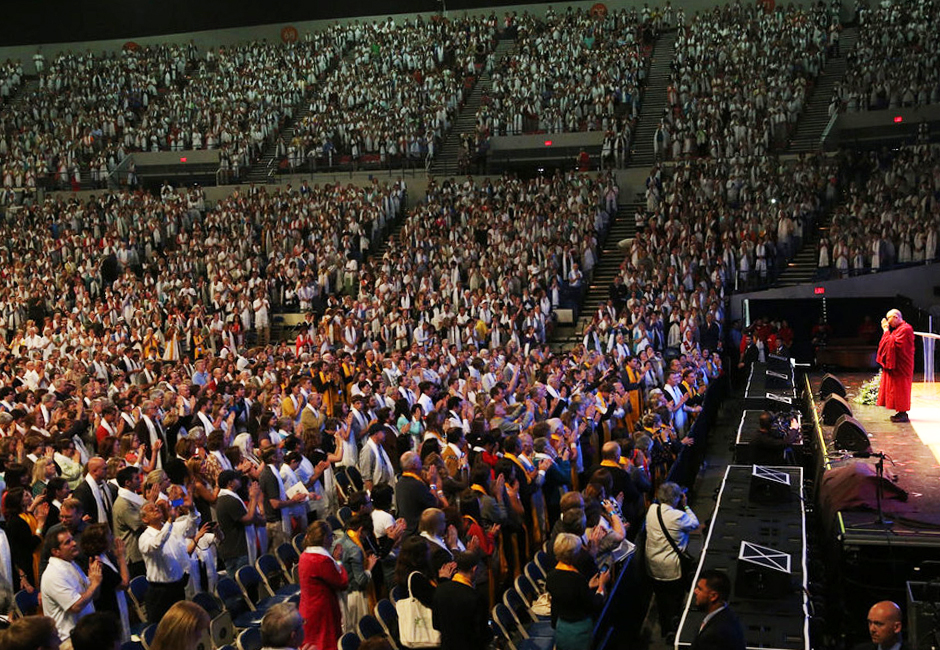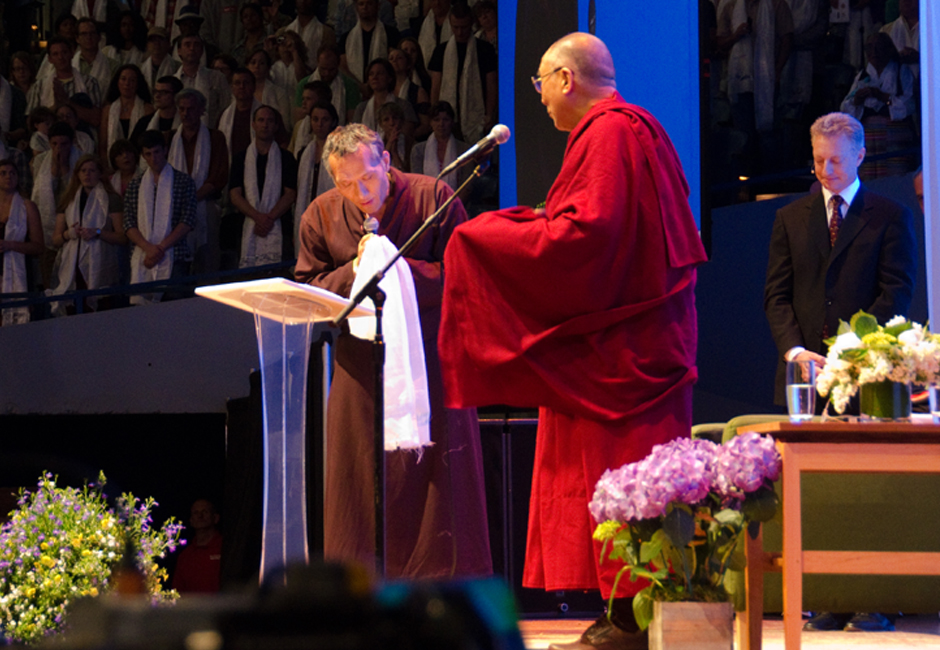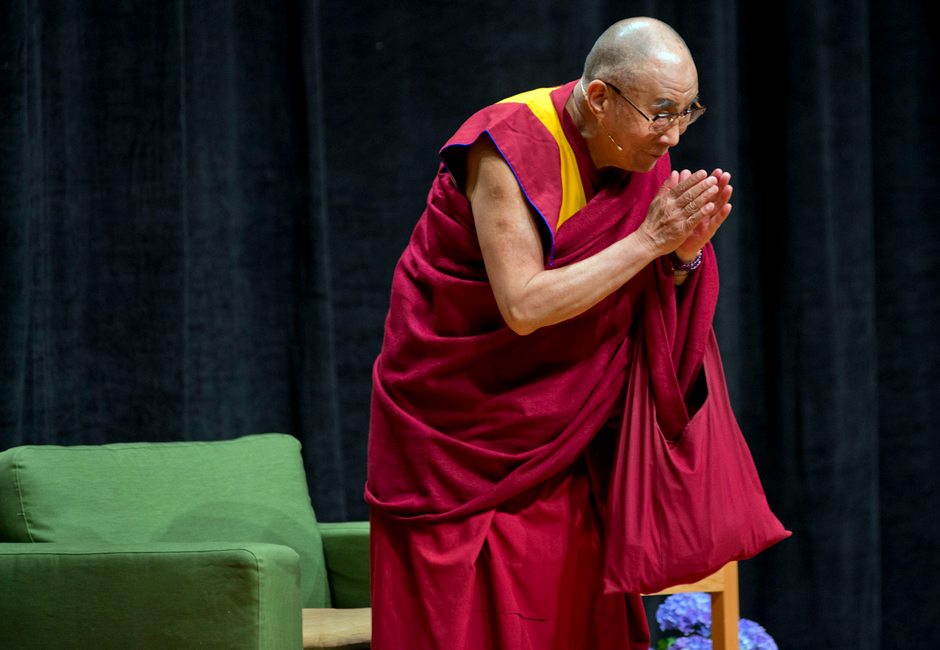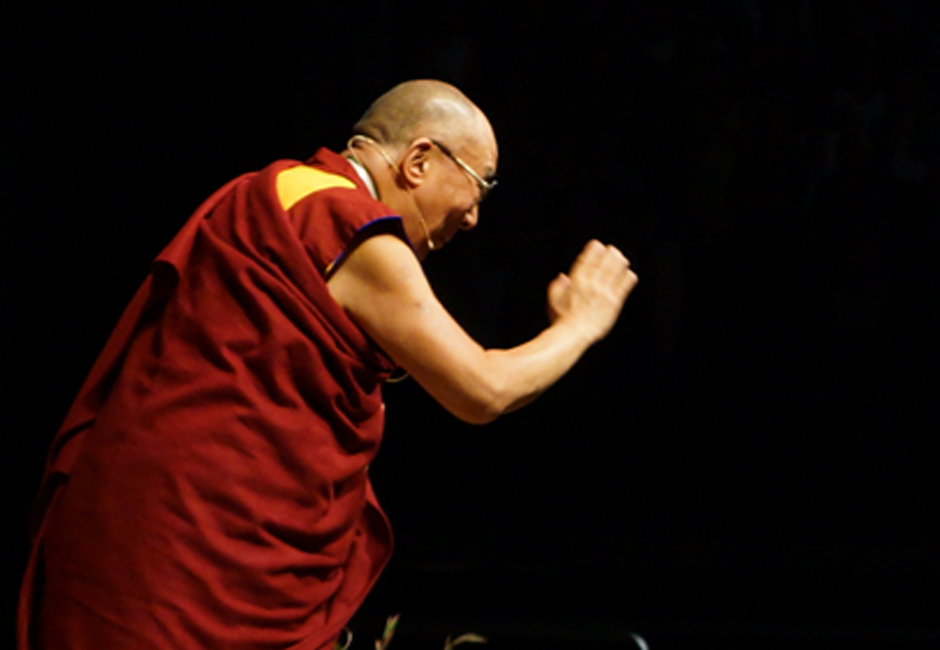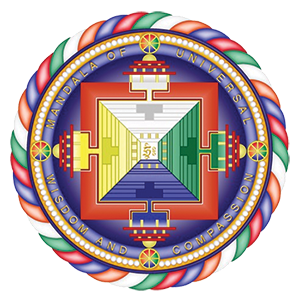The summit came to a close on the final afternoon at the Memorial Coliseum with a public talk concluding with the event host Yangsi Rinpoche (President of Maitripa College) offering thanks and leading a moving white scarf (khata) offering from the grateful audience. As His Holiness waved to the joyful crowd, His parting words were: “We are all human beings; the potential I have, you have too.”
View video of the final afternoon’s public talk
View photos of the final afternoon activities
A Report on the Final Afternoon Public Talk
(source: the Office of His Holiness the Dalai Lama)
In the final afternoon of the summit, Congressman Earl Blumenauer introduced His Holiness to the audience of nearly 11,000 people. His Holiness began as he does so often:
“Brothers and sisters I am very happy to be here with the opportunity to share some of my thoughts with you. I look forward to your stimulating questions from which I too can learn. I’d also like to take this opportunity to thank the organisers for making this possible. Over the last 2-3 days we’ve had a lot of conversation about the environment; a serious topic. But now, I’ll mostly be talking about compassion, having a genuine sense of concern for others. All the major religious traditions have the potential to produce great practitioners dedicated to serving others. But there are also people who increasingly have little interest in religion. They remain part of humanity; they also need the practice of compassion.
“The root of compassion is a biological factor: the affection we receive from our mothers when we are born. Such affection, which has nothing to do with the practice of religion, is crucial to our very survival. What’s more, it’s a unique human quality to be able to extend our sense of compassion to the welfare of others. If we confine ourselves to external, material values, to the neglect of such inner values as compassion, we’ll never find the contentment that is the mark of real happiness.”
He cited the example of the pleasure we get from buying a new car; for a few days we may be really thrilled. But if after a month or two our neighbour buys a new car, we start to think of ours as old and ugly, and we want to get rid of it. What has changed is not the car, but our attitude to it.
In such a context, His Holiness suggests we need to strengthen such inner values as contentment, patience and tolerance, as well as compassion for others, which he refers to as secular ethics. Keeping in mind that it is expressions of affection rather than money and power that attract real friends, compassion is the key to ensuring our own well-being.
When it came to questions and answers, he was asked how people could help Tibet and its people. He replied:
“Whenever you meet our Chinese brothers and sisters, share with them a real picture of what’s happening in Tibet, of the qualities of Tibetan culture and what’s happening to that. Help them to fulfil Deng Xiaoping’s dictum, ‘Seek truth from facts.’”
To a question about how to avoid falling into sadness and despair in the face of difficulties, he quoted the 8th century Indian master Shantideva who advised that we evaluate problems we encounter. If they can be overcome there is no need to worry, what we need to do is take whatever action is necessary. If they cannot be overcome, worrying is of no use; better to do something else instead.
At the end of His Holiness’s talk and the end of his public appearances in Oregon, members of the audience presented white silk scarves or katas to him from their seats in the arena and then hung them around their necks. Suddenly the auditorium was filled with white. His Holiness showed his appreciation by explaining that the Tibetan custom of offering such scarves derives from an Indian tradition of offering a shawl; the material is silk that traditionally came from China, and the scarves are inscribed with auspicious verses written in Tibetan. Finally, he said the smooth texture and white colour indicate the virtue of living a calm, peaceful life with a pure heart.
His Holiness’s host, Yangsi Rinpoche stepped forward to offer his gratitude and to wish His Holiness a very long life. As he waved to the cheering crowd, His Holiness’s parting words were:
“We are all human beings; the potential I have, you have too.

